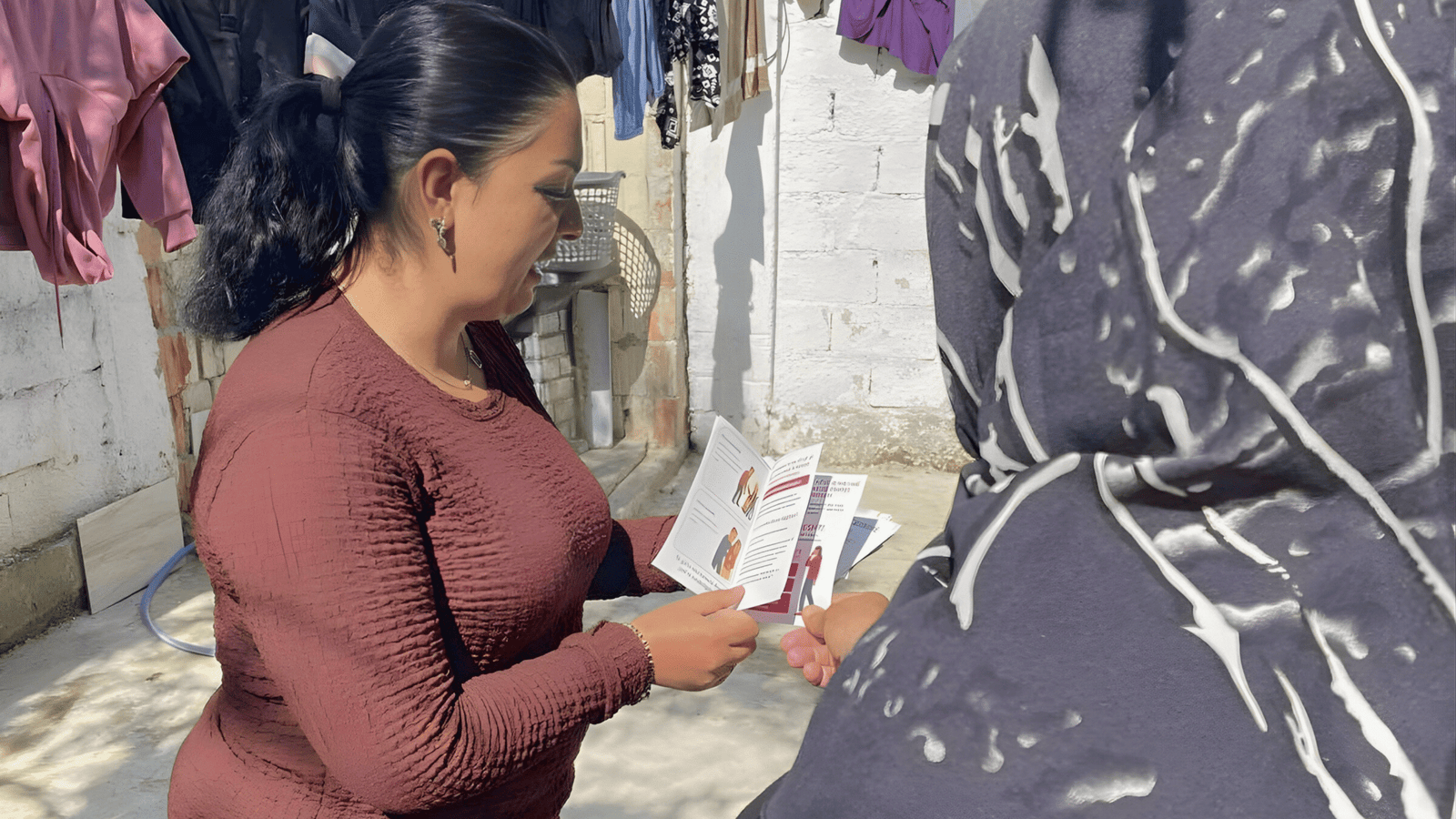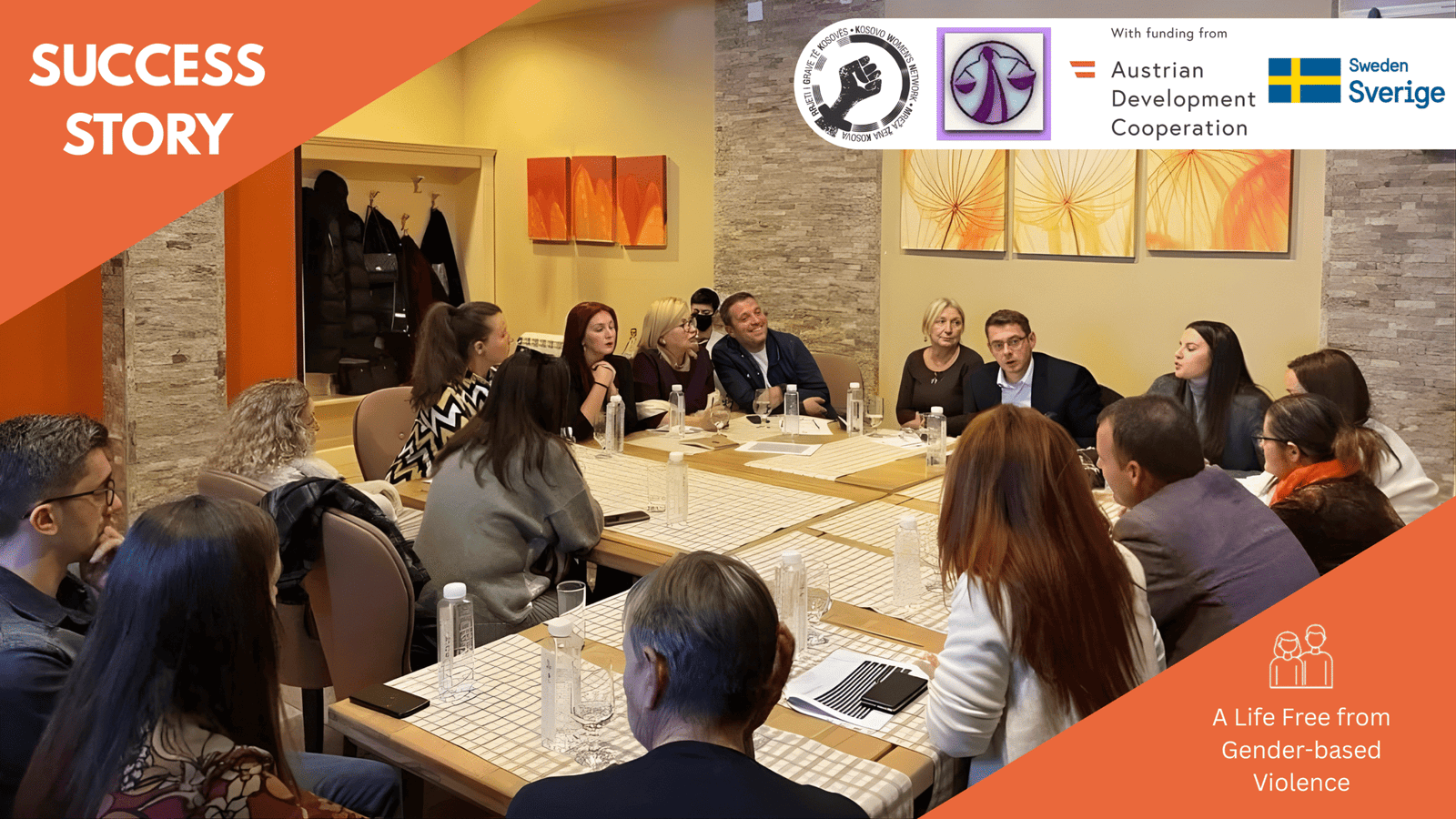On 11-12 Oct., Kosovo Women’s Network (KWN) representative Nicole Farnsworth accompanied colleagues from the Kvinna till Kvinna Foundation to Brussels to meet key actors involved in implementing the European Union (EU) Gender Action Plan and to advocate for its implementation, including improved involvement and support of women’s civil society organizations (WCSOs).
In 2015, the European Commission (EC) and the European External Action Service (EEAS) adopted the Joint Staff Working Document – Gender Equality and Women’s Empowerment: Transforming the Lives of Girls and Women through EU External Relations 2016-2020, better known as the Gender Action Plan (GAP II). The GAP II has several aims, which include, among others, using more gender analysis to inform the planning of EU-funded programs; involving WCSOs and National Gender Equality Mechanisms (NGEMs) like gender equality officers in programming; supporting WCSOs and women human rights defenders; and increasing funding to improve results for girls and women. Needless to say, GAP II is a very important document for WCSOs.
The first annual report on the implementation of GAP II worldwide was published in August. However, it lacked information regarding GAP II implementation in Kosovo and the region. Therefore, KWN collaborated with partners in the region to undertake a rapid independent assessment of GAP II, which involved interviewing 83 representatives of EU delegations, governments and WCSOs in six Western Balkans (WB) countries. The resulting report is forthcoming.
Meanwhile, the Directorate General for the European Neighbourhood Policy and Enlargement Negotiations (DG NEAR), the body responsible for the WB, invited KWN and the Kvinna till Kvinna Foundation to present initial findings and recommendations during the EC Gender Focal Points Annual Meeting in Brussels on 11 Oct. Some of the key recommendations made, in accordance with GAP II, included that EU delegations need to:
- Involve and encourage governments toinvolve WCSOs in the EU Accession process, including in all sector planning;
- Consult WCSOs regarding political developments in countries, not only related to “women’s issues”;
- Discuss issues related to gender equality with government officials as part of political dialogues;
- Ensure that programming budgets for furthering gender equality, including for gender analysis related to specific sectors, for actions to address inequalities identified through gender analysis and for funding for WCSOs to be involved in these processes.
Brigitta Jaksa from the Kvinna till Kvinna Foundation spoke about the importance of supporting WCSOs in the long-term and how such support contributes to social change and sustainable impact.
KWN and the Kvinna till Kvinna Foundation also used the opportunity of being in Brussels to meet and share information with:
- Aishih Wehbe-Herrera, the Policy Officer on Gender Equality at DG NEAR, to discuss strategies for furthering implementation of GAP II;
- The Centre of Thematic Expertise on Civil Society Support to discuss funding needs and modalities for WCSOs;
- Concord Europe which just launched a commentary on the evaluation of the GAP II report for 2016; and
- The Association for Women in Development (AWID), regarding opportunities for collaboration on joint advocacy for funding for WCSOs and women’s movements.
These meetings took place in the context of several important processes currently happening at the EU. In addition to the first annual evaluation of GAP II, the EC is finalizing its midterm review of financing under the Instrument for Pre-Accession Assistance (IPA). This is the instrument through which most EU funding is provided to Kosovo and other WB countries, supporting their EU accession processes. This review will set the stage for the last three years of IPA funding to the region (2018-2020). It is being informed by several external evaluations, including on IPA assistance and on the Civil Society Facility that provides EU funding to civil society, including WCSOs. KWN, the Kvinna till Kvinna Foundation and our partners in the region are providing input to inform the review, towards furthering gender equality and better meeting the needs and interests of WCSOs as crucial actors in these processes.






